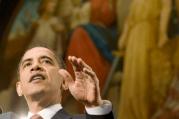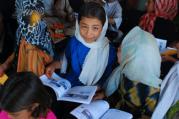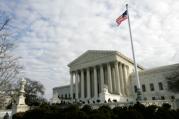Click here if you don’t see subscription options







Recent storms sighted above the Hilltop and the Golden Dome remind us that the Catholic academic community is not living through a time of political serenity, but has a continuing ability to draw lightning strikes from the media, from theological vigilantes and from concerned bishops. How are the moral and religious commitments of the Catholic community to be understood and lived in a pluralistic world where the church itself is subject to alien pressure and hostile scrutiny and where it is experiencing painful internal divisions? Does the recent significant change in the American political landscape point to significant changes in the way the Catholic church and its institutions and its members relate to the American political system? More specifically, how should Catholics respond to the Obama administration?

Service arising from faith in a God who cares for the world's most vulnerable: these were hallmarks of an April 15, 2009 conference that celebrated the ten-year collaboration between Catholic Relief Services and Fordham University. CRS places graduates of Fordham's International Political Economic and Development program into CRS internships overseas. Begun by the U.S. Catholic bishops in 1943, CRS assists people in the developing world to break free from grinding poverty though community based initiatives in many of the world's poorest countries. Young women and men spoke in a series of workshops of their own first-hand involvement in sustainable development efforts in half a dozen nations.

Justice has often been depicted as both female and blindfolded to convey impartiality. The femininity of the judicial symbol is ironic, since as Justice Ruth Bader Ginsburg has pointed out more than once, it's lonely, gender-ly speaking, on the high bench. But what of empathy, the ability to stand in the other person's shoes? President Obama has identified this quality as essential, but does empathy require raising the blindfold to see who is before the Court, and if so, doesn't that in itself subvert impartiality?

